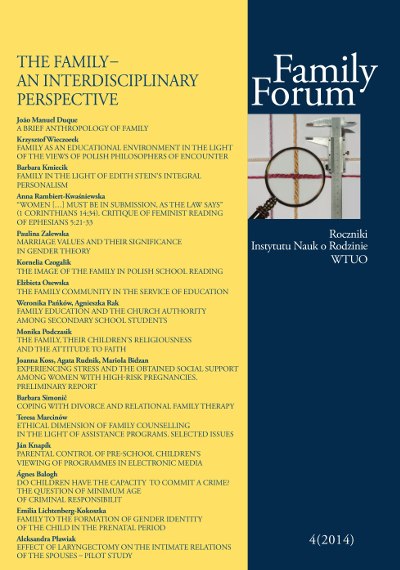Parental Control of Pre-School Children's Viewing of Programmes in Electronic Media
Parental Control of Pre-School Children's Viewing of Programmes in Electronic Media
Author(s): Ján KnapíkSubject(s): Essay|Book Review |Scientific Life
Published by: Uniwersytet Opolski
Keywords: pre-school children; childhood viewing; electronic media; parental control;
Summary/Abstract: Electronic media comprise an integral part of family life and have therefore become the children’s companions. The programmes that children watch from early childhood affect their psychological development and shape their moral norms, attitudes and opinions. One of the important tasks of parents is to define rules for watching programmes in the electronic media, to decide at what age children should start watching programmes, which programmes are appropriate for them, for how long and during which part of the day they can spend time in front of the screen. The research problem how parents control and manage TV viewing in their pre-school children has been studied using qualitative research methods – in-depth interviews as the main research method phenomenological analysis. This research offers findings on what the viewing habits of a child television view are in the families of our participants. It examines the environment and the context of the family activities as a part of which the children watched TV. For a more thorough understanding of the parenting techniques using which parents seek to control children’s television viewing, part of the research interview is given to the view of parents on TV, the positive and negative effects, which, according to the parents, watching television can bring their children.
Journal: Family Forum
- Issue Year: 2014
- Issue No: 4
- Page Range: 235-257
- Page Count: 23
- Language: English

